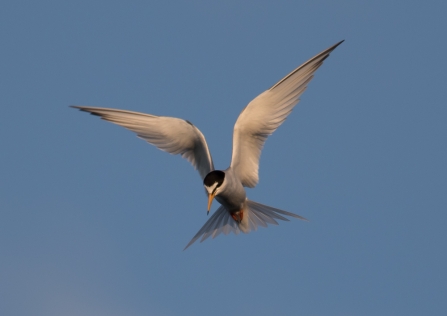Common, sandwich, little, and roseate terns are among the species that used to nest widely in the Solent area – however in recent years their numbers have struggled.
Experts suggest that the birds lack suitable safe space to nest – a particular problem as our shingle beaches are squeezed by rising sea levels on one side and growing coastal development on the other. Often terns are also forced off beaches by human disturbance.
This is made worse by other factors like overfishing, pollution, and stormier weather washing away nests. As a result parent birds have struggled to raise enough chicks to keep population numbers stable.

